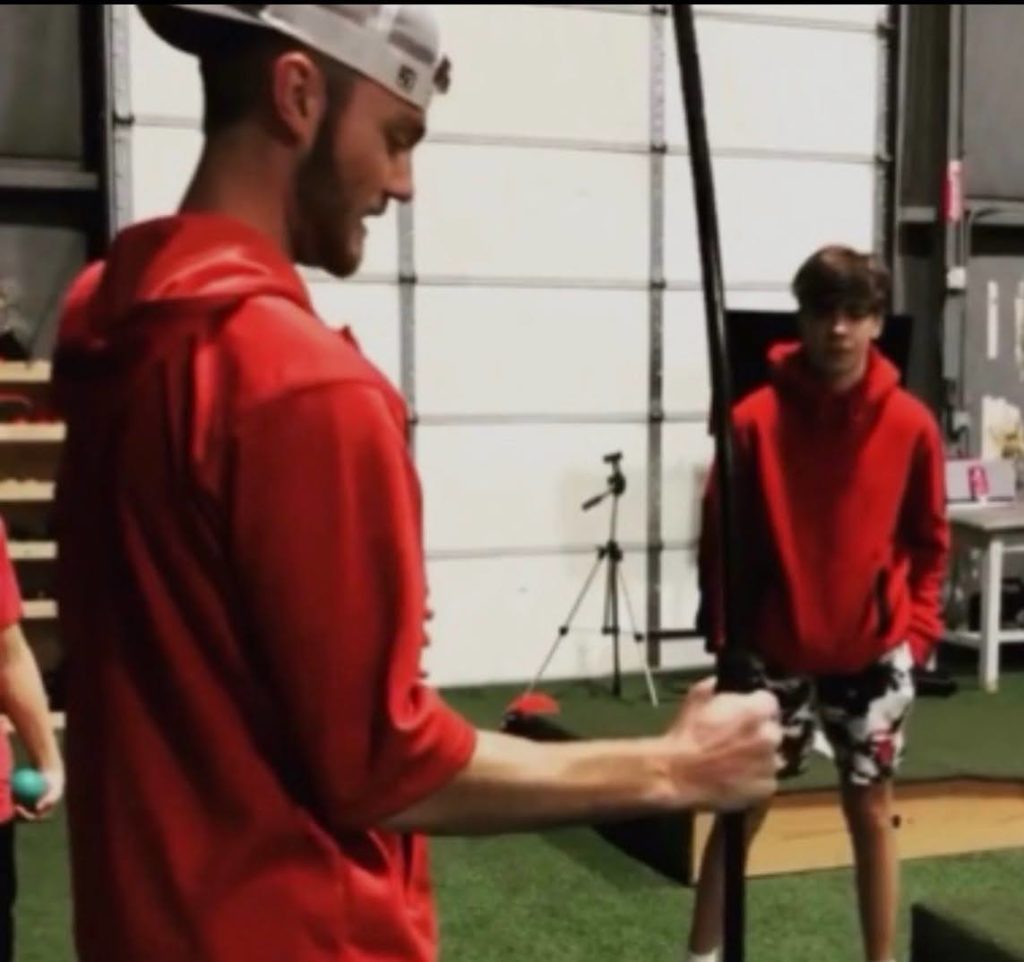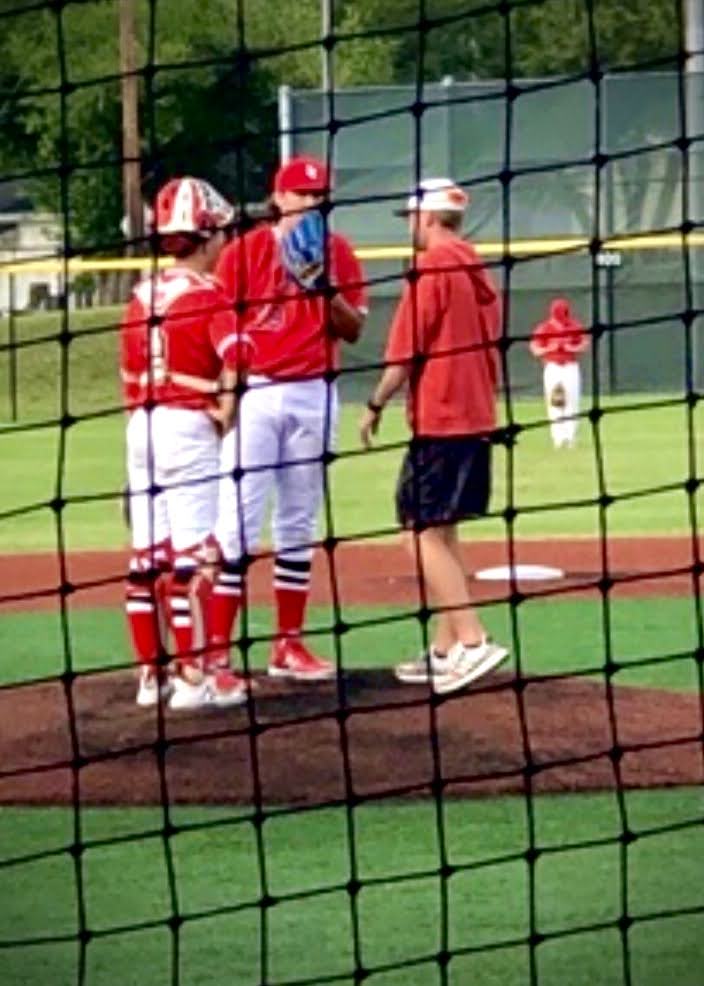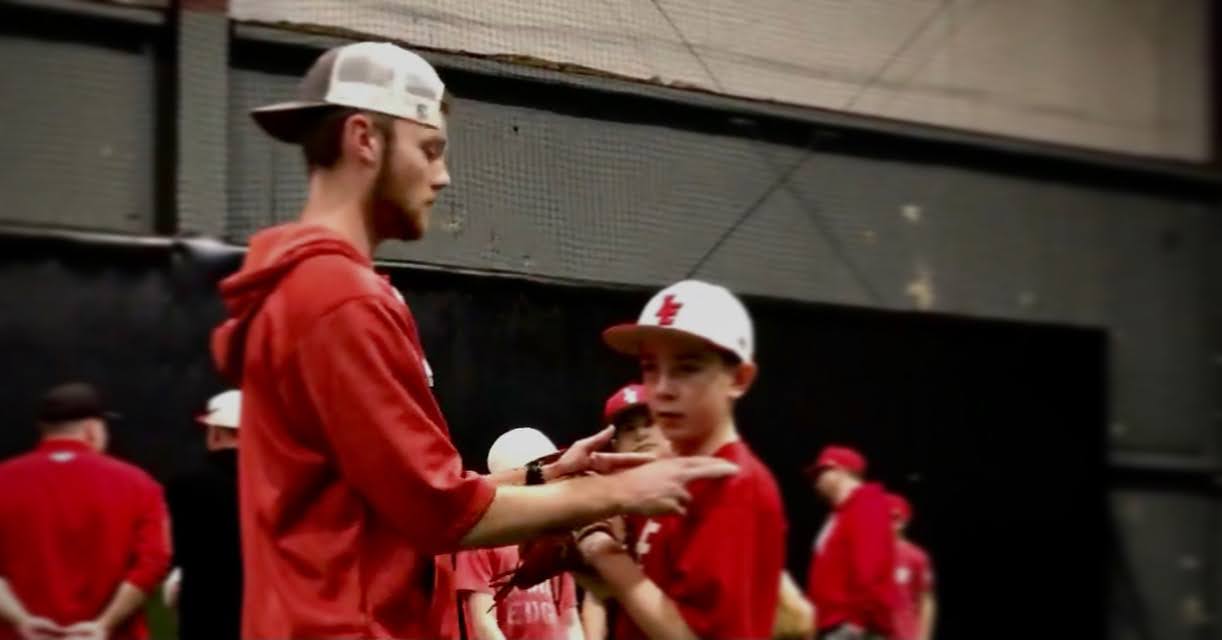We sat down with Noah Briley, Inside Edge’s pitching coordinator, coach for the 17u Showcase team, and lead pitching instructor at The EDGE. He shares his story about struggling through an injury-burdened college career and how that experience led him to find his calling, to serve youth players and help them avoid the same outcome.
 Thanks for taking the time to talk with us. To start, can you tell us a little bit about your background…who is Noah Briley?
Thanks for taking the time to talk with us. To start, can you tell us a little bit about your background…who is Noah Briley?
I’m a Kansas City kid. I grew up in Olathe, Kansas, and attended Heritage Christian Academy where I played on the varsity baseball team for 4 years. I also played travel baseball with Building Champions and eventually earned a scholarship from Neosho Community College in Chanute, Kansas. I was redshirted my freshman season by an elbow injury that I suffered from pitching too many innings in high school and summer baseball. I overcame the injury and was able to pitch my second season. But, I injured it again while I was preparing for my 3rd season with the Panthers. It was injured badly enough that I wasn’t able to play that season. I thought that was the end of my college career. Fortunately, Bakery University called and offered me a roster spot. They knew I was a rehab guy and they were willing to work with me.
I played the fall season with Baker but my elbow continued to be a problem, so I transitioned to an intern pitching coach role for the spring season. That gave me my first experience of coaching. I learned that season that coaching was my calling. I loved helping others get better. I am forever grateful to Coach Goodwin for taking that chance with me and for starting me on my journey as a coach.
How did you find your way from Baker to The EDGE?
I trained with Bob after my second elbow injury. I knew it was injured when I started with him, and he helped me to train in ways to strengthen it. I told Bob I wasn’t getting a second surgery so let’s just go after it and try to extend my college career as long as possible.
After a couple of outings that fall at Baker, it only got worse. I went in for another MRI and the doctor told me it was torn, and even with surgery, I was done pitching. That left me in a pretty bad place mentally. I had dedicated my whole life to pitching and suddenly I had to accept that I couldn’t do it again.
Bob called me one day and asked me to come in to meet with him. I thought he was just checking on my mental state and to make sure that I was okay. He asked those questions but his real reason for calling was to offer me a job. He asked me to come into The EDGE as the head pitching instructor and building manager. I’ve been here just under 2 years now and it’s been the best decision I ever made.
That’s a pretty tough story that actually had a positive ending. So how did you get from pitching instructor at The EDGE to serving as Inside Edge’s pitching coordinate?
Todd asked me pretty soon after joining The EDGE if I was interested in helping some of IE’s coaches develop pitching plans for their teams. I met with a few of them and realized there was a greater opportunity here. Todd and I talked about it and agreed that being a pitching coordinator was the best way to help as many teams and kids as possible. That same season, I also helped the 16u team as an assistant coach. And this season, I’m continuing with that team and will be the 17u showcase team head coach.
Working across the 3 areas gives me a unique view of the players. I get to train them in the winter, and then watch the youth guys during the spring season. When the high school season wraps up, I’ll be on the road with the showcase teams. To be able to both train kids and then watch them play on the weekend is a perfect mix. If things go funky on the mound, I know what the kid has worked on and can use that information to help them get through it.
 Does being injured as a player impact your pitching philosophy?
Does being injured as a player impact your pitching philosophy?
It does. My first goal is to try and keep every kid from being injured. Being hurt is a challenging way to play this game. So, I’m doing everything I can to learn as much as possible and then apply it in my instruction.
I had a lot of old school pitching coaches back in high school and in college. Their influence definitely factors into the instructor I am today. But, I’m also influenced by the new, science-driven approaches like DriveLine, Texas Baseball Ranch, and Premier.
When I played in community college, they didn’t care how hard we threw; they just wanted us to get outs. That’s good when you’re competing on the field–you have to get outs or you’re not going to pitch. But you’re not moving on to the next level unless you can hit pretty big velocity targets. With the new-school approaches velos are going up. But at the same time, strike percentages at the high school and youth levels are trending down. My challenge is to help kids learn the movement patterns needed to throw hard while also emphasizing the mechanics needed to throw strikes.
I’ve trained under Bob for several years and gained a lot of knowledge from him. I’m also pursuing certification from Driveline and have attended a pitching coaches conference at the Texas Baseball Ranch. The way I see it, the more I can learn the better. There are so many different ways to throw a baseball and an equal number of ways to teach those movements. I don’t want to limit myself to a single approach. So, I’m constantly learning and talking to other pitching coaches and trying to be the best version I can.
That approach is proving to work. We’ve had a lot of success at the youth level and we have already seen really strong college commits come out of the program.
The successes have been impressive and fun to watch. Your various roles have to keep you busy. How do you manage it all?
I’m a baseball guy, so I set a few goals for myself and then work to achieve them. When I started coaching, my dream was to work in the MLB. But, after doing this for almost 2 years and talking with people in the industry, I’ve changed that and want to stay in the private sector. I feel like I have a greater opportunity to impact kids at a younger age. My measure of success is seeing them achieve their dreams. I also want to get involved with Inside Edge and help grow our reputation to be a top team on the national level. Todd’s done a great job building us into a regional program. Now, with the combined efforts of Inside Edge and The EDGE, I see that we have the pieces to make the leap on to the national fields.
While growing to the national level is a lofty goal, I know we’ll get there by focusing on the kids and developing them the right way. I want to create a relationship based on trust where they and their parents know that I have their best interest in mind–both on the baseball field and in life. I’ve tried to change the culture at The EDGE around this idea, and I know it’s working because now we have kids who come in and just hang out. They get in their work and then hang out together. Seeing that shift has been my favorite accomplishment so far. Baseball is about so much more than just playing the game.
